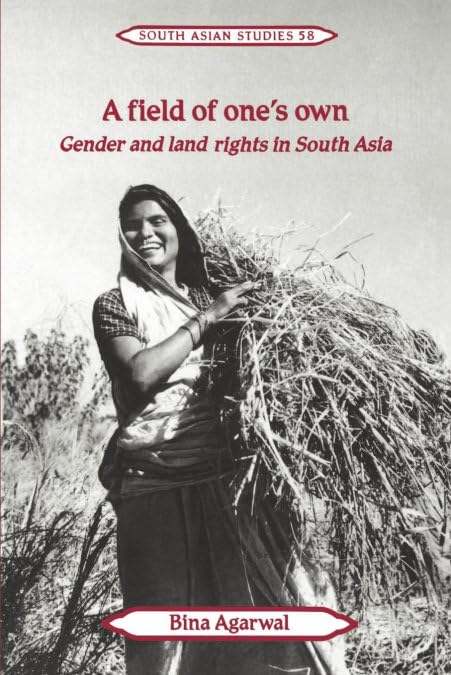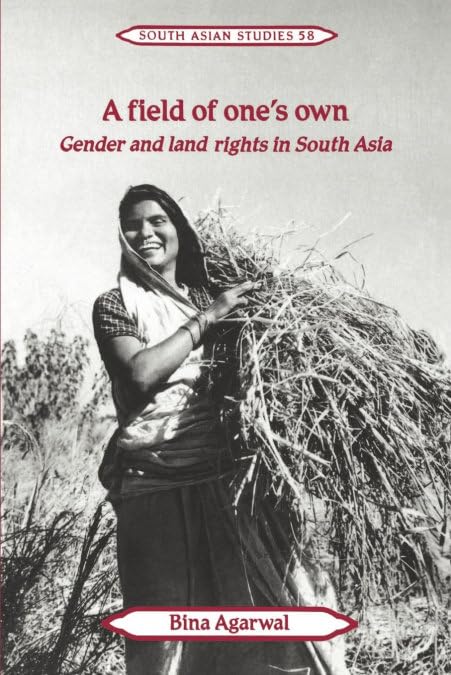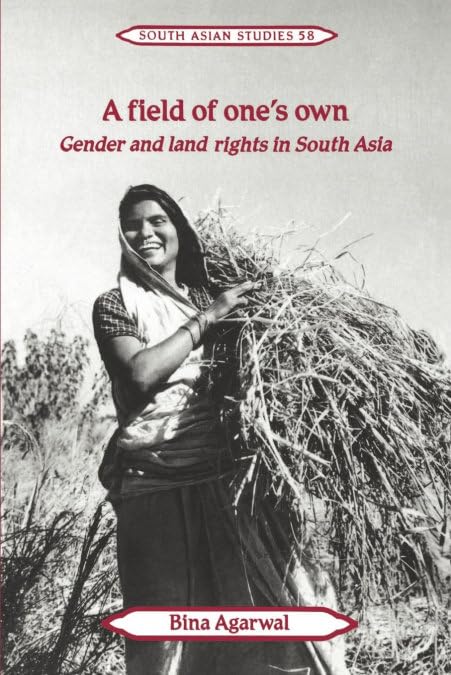A Field of One's Own: Gender and Land Rights in South Asia: 58 (Cambridge South Asian Studies)
A Field of One's Own: Gender and Land Rights in South Asia: 58 (Cambridge South Asian Studies) is backordered and will ship as soon as it is back in stock.
Couldn't load pickup availability
Genuine Products Guarantee
Genuine Products Guarantee
We guarantee 100% genuine products, and if proven otherwise, we will compensate you with 10 times the product's cost.
Delivery and Shipping
Delivery and Shipping
Products are generally ready for dispatch within 1 day and typically reach you in 3 to 5 days.
Book Details
-
Author: Agarwal, Bina
-
Publisher: Cambridge University Press
-
Binding: Paperback
-
Number of Pages: 596
-
Release Date: 23-02-1995
-
ISBN: 9780521429269
-
Languages: English
-
Package Dimensions: 8.8 x 6.1 x 1.7 inches
About The Book
Bina Agarwal’s A Field of One's Own offers a comprehensive analysis of gender and property in South Asia, focusing on how economic factors, particularly the gender gap in property ownership, profoundly affect women’s economic opportunities and social status. Agarwal argues that control over property is the most important economic factor influencing women’s well-being and empowerment, making this study crucial for understanding gender dynamics in South Asia.
The book explores a variety of dimensions, including historical, cultural, and socio-economic factors that influence women's access to and command over property. It highlights the systematic inequalities women face in land ownership and the deep-rooted gender biases that hinder their economic progress.
Agarwal’s analysis is framed within the broader context of South Asian societies, shedding light on the intricate relationship between gender, property rights, and the wider political economy. With 13 maps included in the book, the reader is provided with visual aids to better understand the geographical and socio-economic conditions that shape gendered property dynamics in the region.
This work is indispensable for scholars, policymakers, and activists focused on gender studies, economics, South Asian societies, and land reform, offering valuable insights for addressing the persistent challenges women face in securing property rights and economic equality.





